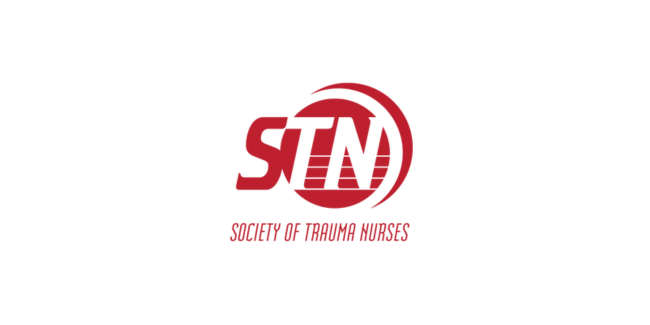STN Publishes Position Statement on Qualifications and Competencies for the Trauma Program Manager
TCRN Certification Is an Important Measure of Competency for Trauma Program Managers
In this BCEN Inside News feature, learn all about the TPM role, why RNs are uniquely suited to serve as TPMs, and why attainment and maintenance of the TCRN is an important measure of TPM competency. Plus, learn how you can volunteer (by April 30) to help STN develop its new advanced course for TPMs.
One of the most important roles within the trauma system is that of the Trauma Program Manager (TPM). As the recognized professional society serving TPMs, the Society of Trauma Nurses (STN) provides education and resources for TPMs and other members of the trauma team to support the delivery of optimal and equitable trauma care to all people.
Role of Trauma Program Manager (TPM) Defined
.
STN defines a TPM as, “a registered nurse with knowledge and clinical experience in the care of injured patients who, in collaboration with the trauma medical director, coordinates the interdisciplinary services and organizational systems necessary for optimal care of the injured patient, and oversees the educational, clinical, research, administrative, financial, performance improvement, and outreach activities of a trauma program.”
.
In March, STN released its Qualifications and Competencies for the Trauma Program Manager position statement. The position statement includes a list of STN-endorse statements, including:
- Trauma Program Managers (TPMs) play an essential role in the delivery of optimal and equitable trauma care to all people.
- Registered Nurses (RNs) are the professionals best qualified to serve as TPMs by virtue of their education, training, and experience, and whenever possible, the role of the TPM should be assigned to an RN.
- Attainment and maintenance of the Trauma Certified Registered Nurse (TCRN®) certification through the Board of Certification for Emergency Nursing (BCEN) is one important measure of competency for TPMs.
- View the full list of STN-endorsed statements regarding TPMs here.
The TPM Role: Designed with RNs in Mind
As the position paper describes, TPMs are “leaders in their institutions who advocate for the highest level of quality trauma care across the continuum.” The paper goes on to describe the six domains of the TPM role based on the findings of the STN Trauma Program Manager Role Delineation Study. The paper then discusses why “RNs are uniquely well-suited to serve as TPMs, and trauma programs are best served when registered nurses hold the TPM role.”
.
According to STN, 40% of U.S. states have implemented statutes or regulations that require the TPM role to be filled by a registered nurse.
.
Demonstrating & Maintaining Competency
In describing why attainment and maintenance of TCRN certification through BCEN is an important measure of competency for TPMs, STN cites evidence that “a culture that promotes nursing certification advances safety, improves organizational culture, improves processes of care, and improves quality of care.”
Based a commitment to promoting optimal trauma care to all people, and in acknowledging the essential role TPMs play in trauma systems, STN concludes that: “TPMs should, at minimum, hold a bachelor’s degree in nursing, have completed trauma-specific clinical and administrative courses such as those offered by STN, obtain TCRN certification, participate in national nursing associations, and attend national meetings to learn and share research and evidence-based practices in the delivery of optimal and equitable trauma care.”
Read the full STN position statement.
BCEN is pleased to offer special STN member discounts on TCRN certification and renewals. Trauma-specific advanced CE courses are available on BCEN Learn.
Inside News EXTRA: STN is Seeking Volunteers
The Society of Trauma Nurses is seeking exceptional volunteers to assist with the development of the STN Advanced Trauma Program Management Course. Volunteers must hold the TCRN.
The STN ATPM course will be designed by TPMs for TPMs who seek advanced training and in-depth knowledge related to the Six Performance Domains of Trauma Program Management as outlined in the STN TPM Role Delineation Study, which is included as a supporting appendix to the
View the complete list of volunteer qualifications, apply and inquire with questions here. Applications are due to STN by April 30.

